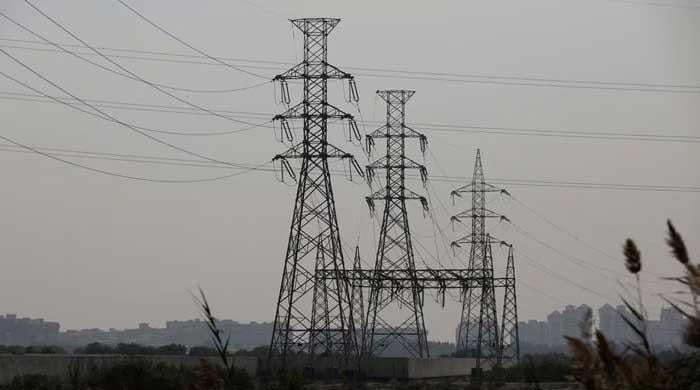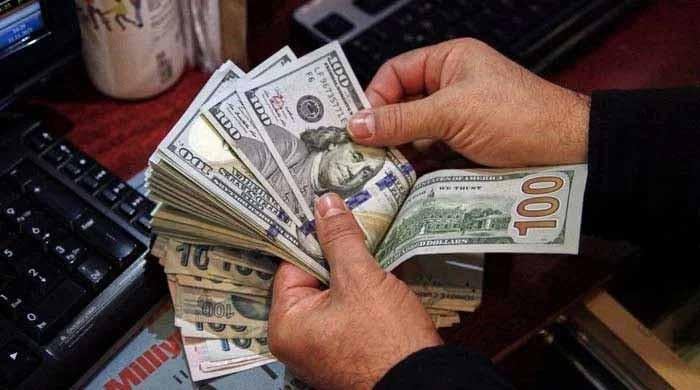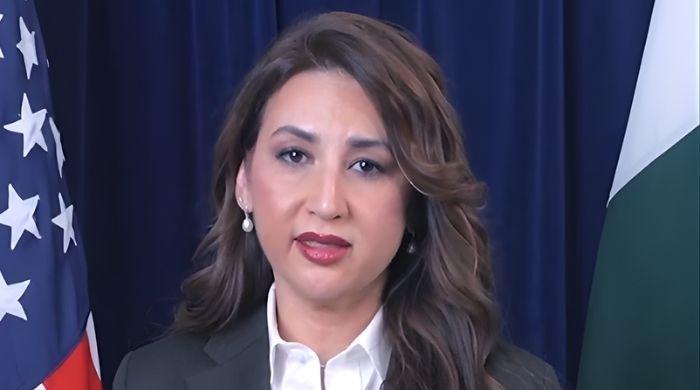Lawmakers blocking uniform sales tax rate: Hafeez Shaikh
KARACHI: Federal Minister for Finance Dr Abdul Hafeez Shaikh on Sunday said the government wanted to impose sales tax at a uniform rate throughout the country but members of parliament did not agree...
May 21, 2012
In a meeting with members of the Federation of Pakistan Chambers of Commerce and Industry (FPCCI) on Sunday, the finance minister said, “The budget is being formulated in a professional manner and on the basic principles of economics and has nothing to do with any political gains for the upcoming general elections. We will follow economic stability,” he said before adding, “Revenue will be increased without burdening the existing taxpayers.”
The minister said the provinces would increase expenditures on education and health. He said the budget for the 2012-2013 fiscal year would be unveiled on June 1, promising that it would be “politics-free” despite people’s reservations that it was being presented in an election year.
The finance minister told the business community that there would be no unpleasant surprises in the budget and they would be able to comfortably continue their businesses. “There will be no tax in the budget and lower income groups will be provided relief,” he assured the gathering.
Dr Hafeez Shaikh said that the tax system would be simplified, and existing taxpayers would not be burdened by the budget. He did, however, warn the elites who enjoyed a taxable income but did not contribute a single penny towards the national kitty that they would be brought into the tax net to generate more revenue.
In response to several queries regarding external resources such as the Coalition Support Fund (CSF) and the new IMF programme, the finance minister was reluctant to make any comment. He also did not answer a question about financing the budget deficit during the next fiscal year.
The finance minister said that developing countries usually had problems of low tax-to-GDP ratio, reduced development resources and corruption. However, he categorically said that the federal government could not impose income tax on agriculture gains. “The Constitution prohibits the federal government from [imposing] such a levy,” he said. “It is a subject for the provinces and they have to make efforts to generate sizeable revenue from this source.”
The upcoming budget will be the fifth budget presented by the incumbent government, and the third consecutive budget unveiled by the sitting finance minister.With regard to performance in the current fiscal year, Dr Shaikh said that GDP growth would continue to stand at 3.7 percent despite the country’s many economic challenges.
Dr Hafeez Shaikh said that the income tax threshold had been enhanced to Rs350,000 in the past two years to provide relief to members of the lower income brackets. He said that people seeking relief in the name of the common man would not be entertained, and relief would be provided only after identifying eligible persons.
Regarding the energy crisis, the finance minister said that a collective effort was needed to overcome the issue. He said that the government had provided a Rs1,000 billion subsidy on electricity, and a similarly large sum had been provided on fertilisers to ensure food security.
On the issue of the circular debt, which currently stands at Rs350 billion, the finance minister said that it could be rectified permanently by preventing line losses: “Electricity theft should be stopped immediately,” he added. Touching upon macro-economic issues, the minister said that this year export would remain strong despite the current global meltdown.
Speaking on the occasion, Secretary Finance Abdul Wajid Rana said that commercial banks would continue to finance the current budget deficit, along with external financing and non-banking borrowing. Regarding the forthcoming budget he said that development expenditure would be the prime focus and it would cover energy and infrastructure as well.
FBR Chairman Mumtaz Haider Rizvi, meanwhile, said that the budget would be formulated on the basis of equity. Acting President FPCCI Shaikh Shakeel Ahmed Dhingra and businessman Tariq Sayeed also spoke on the occasion to highlight the various issues creating difficulties for the business community and hampering economic growth in the country.









